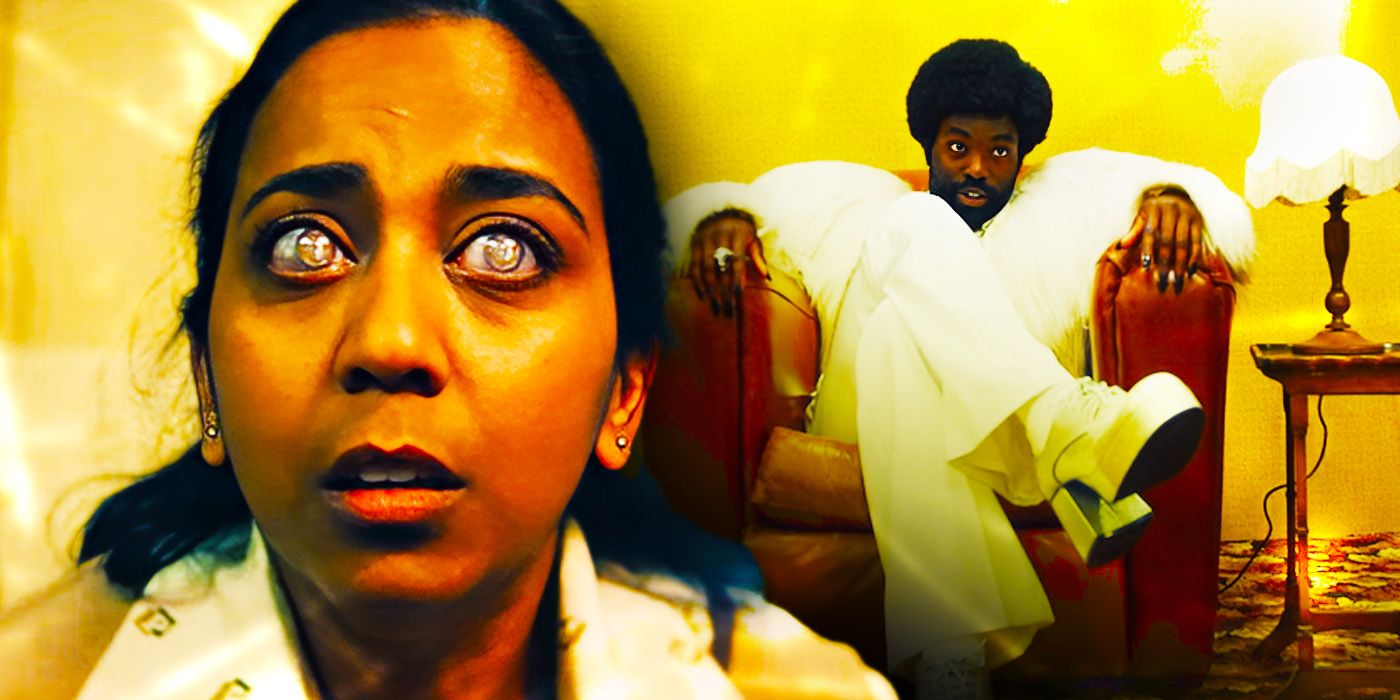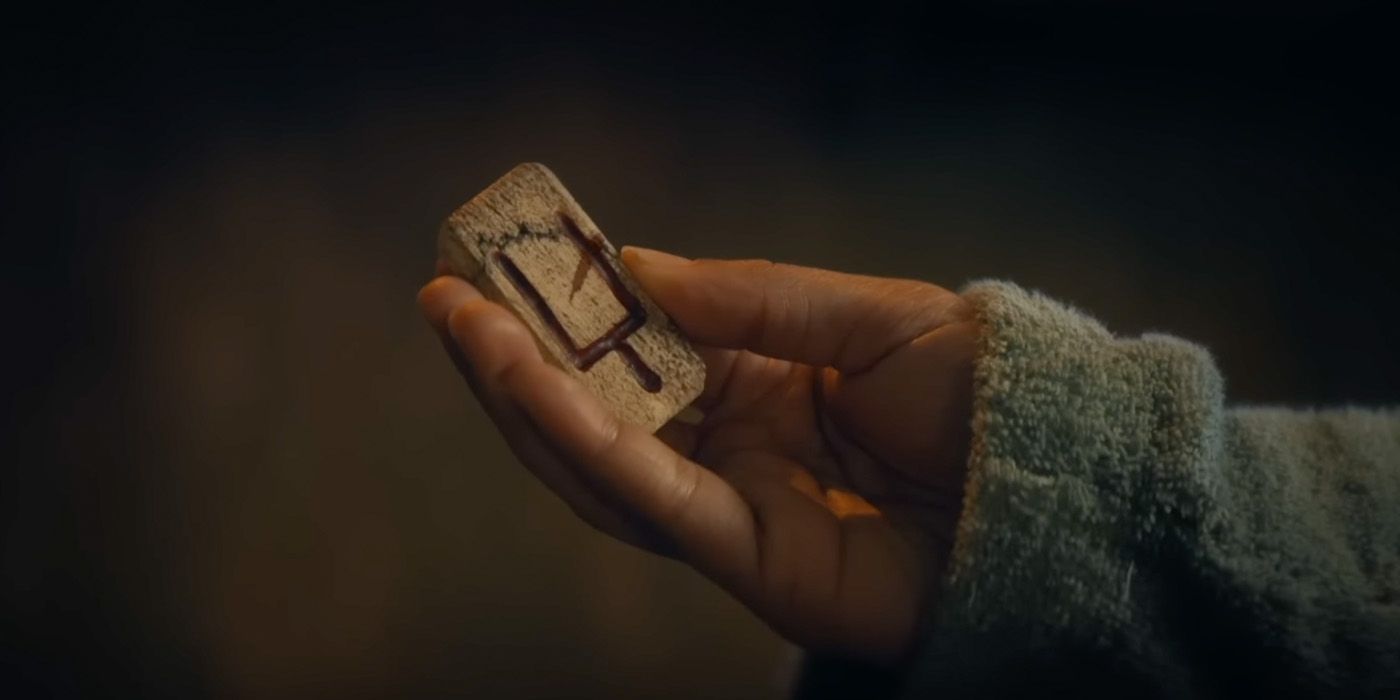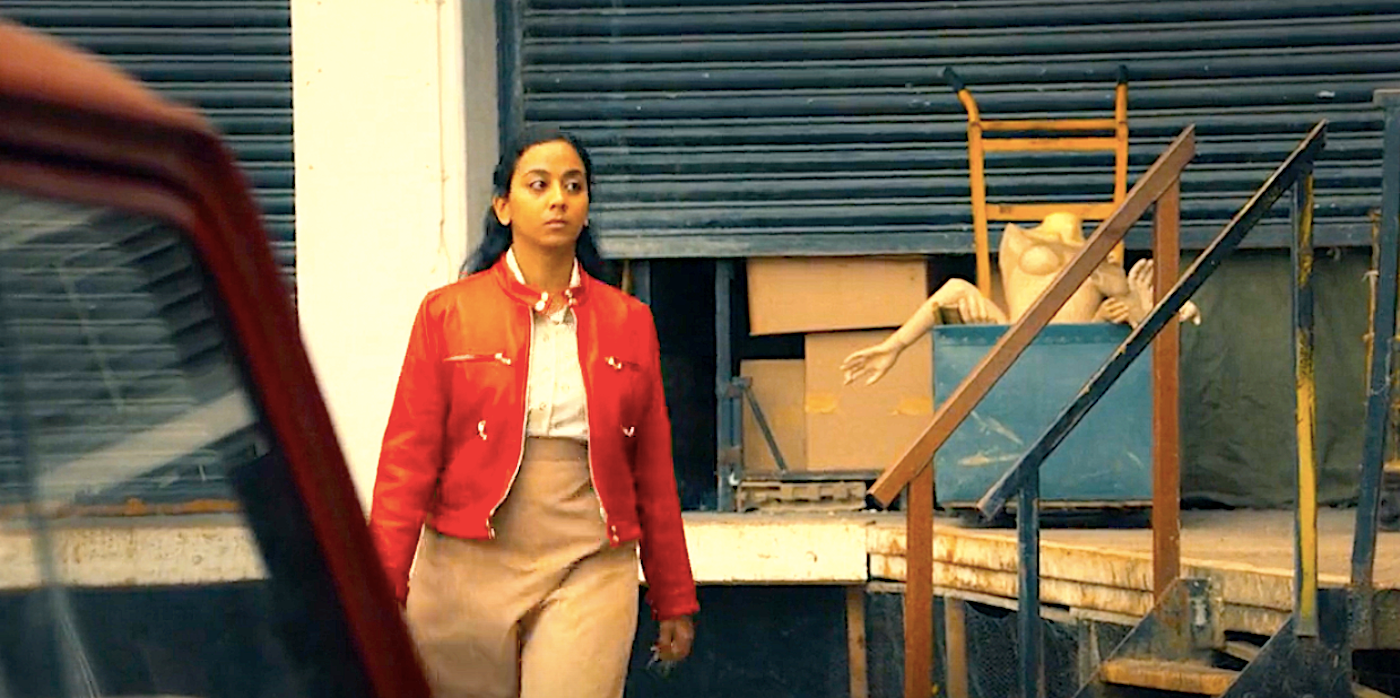
Black Mirror's Demon 79: Unveiling 6 Mind-Blowing Twists That Will Leave You Stunned!

Dive into the mind-bending world of Black Mirror's 'Demon 79' as shocking twists unravel Uncover the sinister connection between the mysterious talisman and the haunting episode 'White Bear' Discover why Nida's role in completing the three sacrifices is crucial and how Keith's murder differs from Tim and Chris' deaths Unveil the truth behind the apocalyptic events and why Nida willingly joins Gaap for eternity Prepare to be captivated by the dark secrets and thought-provoking themes explored in this must-watch episode
WARNING: The following contains SPOILERS for the fifth episode "Demon 79" of Black Mirror season 6.
The latest installment of the critically acclaimed dystopian and social critique series, Black Mirror, takes an unexpected turn in the supernatural and horror genres. Titled "Demon 79," the final episode of season 6 introduces Nida, a sales associate in Northern England during the year 1979. In a twist of events, Nida accidentally summons a demon named Gaap, who informs her that she must carry out three murders within three days to avert the impending apocalypse.
"Demon 79" depicts a fascinating moral quandary reminiscent of the renowned "trolley problem" in philosophy, initially proposed by Philippa Foot in 1967. This dilemma revolves around the fundamental question of whether it is justifiable to sacrifice a few lives in order to save the lives of many. Nida firmly believes that she is acting righteously by attempting to eliminate three individuals, with the aim of averting a dubious apocalypse forewarned by Gaap. However, despite her utmost endeavors, she ultimately fails to avert the world's demise.
6 Demon 79's Tailsman Explained & How It Connects To Black Mirror's White Bear
The talisman discovered by Nida in "Demon 79" resembles a domino and serves as a conduit for invoking Gaap in the episode. Nida's superior instructs her to have her lunch in the store's basement, as a response to racially-charged complaints made by her disrespectful coworker. Consequently, Nida ventures into the peculiar and cluttered basement where she eventually stumbles upon the talisman. Through the item, she hears Gaap's voice, adorned with the distinctive Black Mirror symbol. This emblem, initially introduced in season 2, episode 2 "White Bear," has made multiple appearances throughout the series and acts as a significant Easter egg in Black Mirror season 6. Symbolizing malevolence and potency, it often represents a formidable presence in various episodes.
5 Why Gaap Needs Nida To Complete The 3 Sacrifices
4 Nida Wasn't The First Person Needed To Stop The Apocalypse
Nida unintentionally summons Gaap, a demon, when she pricks her finger and touches a bone talisman. Gaap initially appears in his true demonic form but quickly transforms into a charismatic TV personality. Gaap manipulates Nida into believing that she is responsible for his predicament and that she must commit three murders before May Day in order to save him from a dreadful void of nothingness. Although the reasons behind the talisman causing the end of the world are unclear, Nida is compelled to follow Gaap's rules and carry out the three human sacrifices.
When Nida stumbles upon the talisman hidden away in the store basement, she discovers newspaper clippings that suggest the store's founder, Geoffrey Possett, was responsible for eliminating three individuals, effectively averting the impending apocalypse on a previous May Day. Little else is known about Geoffrey's circumstances, besides being among the last to harness the power of the talisman, possibly in an attempt to evade an eternal void by summoning Gaap or another demon. Surprisingly, Nida emerges as the first individual to fall short in her mission to take enough lives to save the world, highlighting the historical inclination, seen in the popular "trolley problem" in the Black Mirror episode, to sacrifice the few for the sake of the many.
3 Why Keith's Murder Doesn't Count As a Sacrifice, But Tim & Chris' Deaths Do
Keith's murder cannot be classified as a sacrifice in "Demon 79" due to his own history as a murderer. Following Nida's elimination of both Keith and his brother Chris on the same evening, Gaap suspects that Nida has fulfilled her mission. Nevertheless, following a call to an unconventional demon customer service line, Gaap realizes that Keith is not eligible for sacrifice since he directly took someone's life, making him off-limits. Gaap justifies the situation to Nida, explaining that Keith essentially aligned himself with the demon side and is now under the protection of more influential demons. Nida, on the other hand, is permitted to eliminate both good and bad individuals, as Tim, despite being a disturbed individual, did not commit murder, making him fair game unlike Keith.
2 Demon 79's Apocalypse Isn't Completely Nida's Fault
The catastrophic event that transpires in "Demon 79" is not solely the result of Nida's actions. Though she was on the brink of eliminating Michael and accomplishing her mission, the intervention of the police, who believed they were acting in the best interest of society, foiled her plans. Following her arrest, Nida exhibits signs of derangement and deteriorating mental health in the presence of the law enforcement officers, asserting that her intention was to eradicate Michael in order to preserve the world. While this notion may be considered far-fetched and unsettling, it ultimately proves to be accurate within the realm of "Demon 79". Consequently, a portion of culpability for the impending apocalypse falls upon the police officers who failed to grasp and comprehend the profound significance underlying Nida's violent spree.
1 Why Nida Joins Gaap To Spend Eternity In Oblivion
Content: In the finale of "Demon 79," Nida makes the decision to join Gaap in eternal oblivion, as it appeared to be the best choice available to her. Considering the impending destruction of Earth and the majority of humanity as a result of her failed mission, Nida's options were extremely limited. Facing the possibility of perishing during the apocalypse or opting for companionship within Gaap's boundless void of time and space, Nida found solace in the prospect of having a friend. Given her apparent lack of happiness or social interaction in her previous life, Nida found it relatively easy to leave everything behind and embrace the infinite oblivion alongside Gaap in the concluding episode of Black Mirror season 6, titled "Demon 79."



















